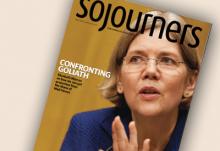Nobel Prize
ANY REASONABLE person should admit that Bob Dylan’s 54 years as a great American artist deserve some kind of monumental recognition, maybe even a real monument somewhere. But the monumental recognition Dylan received in October from the Nobel Prize committee for literature has generated plenty of argument, much of it among reasonable people. Scottish novelist Irvine Welsh had the best one-liner. “This,” he said, “is an ill-conceived nostalgia award wrenched from the rancid prostates of senile, gibbering hippies.”
But, generational animosities aside, the most cogent complaint about the Dylan Nobel goes like this: “Sure, most of his music is great. But is it literature?”
And of course it’s not. At least not if literature is limited to its dictionary definition as the stuff composed to be read from a page (or, today, a screen). However, in announcing Dylan’s prize, the Nobel committee dodged that whole question. They didn’t call him a “poet.” Instead, they honored his “new poetic expressions within the great American song tradition.”
I’m not sure exactly what the Nobel committee meant by that cryptic utterance, but it hits pretty close to the heart of Dylan’s achievement. At his best Dylan has brought the sensibility, philosophical stance, and rough-hewn sound of what Greil Marcus calls “the old, weird America” into our postmodern era not as archaeological artifact, but as a living tradition.
The voice of the old, weird America, echoing through Dylan’s songs, is the voice of the medicine-show snake oil peddlers and the Appalachian snake-handlers. It’s the voice of the slave, or his recent descendant, for whom the rising waters of the Mississippi were a metaphor for his entire life. It is the dirt farmer driven mad by the wails of his hungry children. The Southern poor white committing racist violence as a pawn in the rich man’s game. It’s the Sunday morning believer and the Saturday night cynic. The oral culture of Dylan’s America was raw, unmediated, life on life’s terms. And that’s the voice we can still hear in the best of his songs.

HEY PRESIDENT OBAMA: The Nobel Peace Prize committee is calling. They want their medal back.
The coveted award, which many felt was premature, at best, when bestowed during the president’s first year in office, was seriously tarnished in the eyes of many by his escalation of the war in Afghanistan and other military endeavors.
But Obama’s role in waging drone warfare—particularly in Pakistan and Yemen—has made a mockery of the prize that Alfred Nobel said should go to the person “who shall have done the most or the best work for fraternity between nations.”
Obama’s drone attacks—according to a May investigation by The New York Times, Daniel Klaidman’s new book Kill or Capture, and other sources—are arguably in direct violation of U.S. and international law, and immoral to boot.
The drone attacks started out with clear rules: Only target those who represent a direct threat to the United States. Those rules soon went out the door—a senior U.S. official called it a “little liberalization that went on in the kill lists,” according to The Washington Post, while a former counterterrorism official said that “the elasticity of that has grown over time.”

In 1991, Rodney King was stopped and beaten by a group of Los Angeles police officers. The stop was not unusual, and the beating was a tragic reminder of the history and the reality of police brutality in the United States. The difference this time was that the beating was recorded on videotape. Rodney King became a symbol of racist injustice perpetrated by ordinary people, of injustice perpetrated by law enforcement.
Also in 1991, the Norwegian Nobel Committee awarded the Nobel Peace Prize to Aung Sun Suu Kyi, a Burmese activist for democracy. Under house arrest at the time, she could not travel to Oslo to receive the award. She was then and is today a symbol of patient persistent witness against oppression and for human rights.
On June 16, 2012, Aung Sun Suu Kyi received her 1991 prize in Oslo. On June 17, 2012, Rodney King was found dead in the swimming pool of his home. Both of these individuals are important because of their choices for peace.
Aung San Suu Kyi was awarded the Noble Peace Prize in 1991 for her work for democracy and human rights in Burma. But at the time of her award, she was under house arrest by Burma’s military; her husband and sons traveled to Norway to accept the prize on her behalf. Now, 21 years later, she is able to travel freely and finally, give the acceptance speech for her award.
Ms. Maathai's life and work are examples of the truth of the adage, "Nothing is more powerful than a made up mind." She made up her mind that planting trees is a way to make life better for rural women and for all of humankind. She wanted to plant one tree for every person in Kenya. An the Green Belt Movement has planted tens of millions of trees.
This past Monday, January 3, anti-mountaintop removal activist Judy Bonds exhaled her last breath from the homeland she loved.
